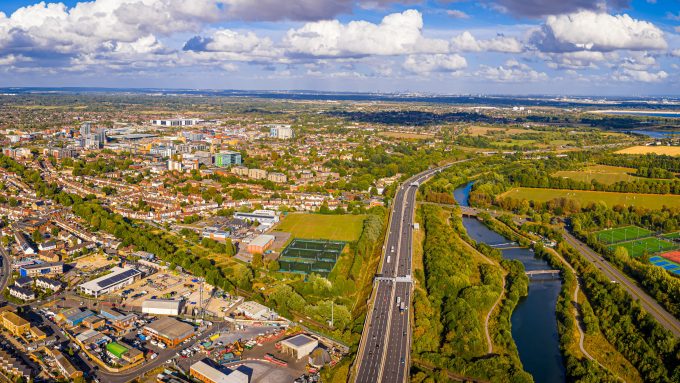
Net Zero Places Innovation Brief

Achieving UK and global targets for net zero will be the defining challenge of the next three decades and a central driver of innovation and change across all sectors. In the following Net Zero Places Innovation Brief you will find insight and analysis from domain experts across Connected Places Catapult, covering examples of pioneering practise, dispatches from the leading edge of research, and a showcase of brilliant British businesses with net zero propositions for places.
The UK has done well in reducing CO2 emissions from 1990 levels through new forms of energy supply – most notably the switch from coal to gas and renewables. The mobility and built environment sectors have been slower to adapt however and are now the two largest contributors to emissions. Given the interdependencies between the way we live, work and travel, emissions reduction targets in mobility and the built environment will not be achieved by taking a sector-by-sector approach. This is a system-level problem, where place, energy, infrastructure, industry and people all influence each other. The transition to Net Zero Places therefore requires a combination of measures, including:
Improving the performance of existing systems and assets through digitisation, retrofit and creative integrations with adjacent systems;
New business models, services and spatial planning which manage down demand for carbon intensive activities, for example through behaviour change strategies;
The introduction of new technologies to realise step changes in those sectors with the highest contributions, particularly in heavy transport and logistics.
We have organised this latest Net Zero Places Innovation Brief around these three areas of need, with chapters looking at discrete market opportunities within each – from decarbonising port and airports (a major theme in the EU Green Deal), to boosting active travel, retrofitting homes and other buildings, and overhauling the haulage industry (as featured in the UK Government’s recent Ten Point Plan for a Green Industrial Revolution).
Whether you are looking for ideas on how to deliver net zero commitments in your area or organisation, or an innovator seeking opportunities for collaboration and commercial contracts, this Innovation Brief will connect you to the insights you need to take action.





